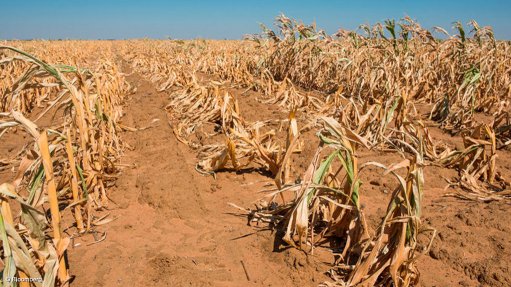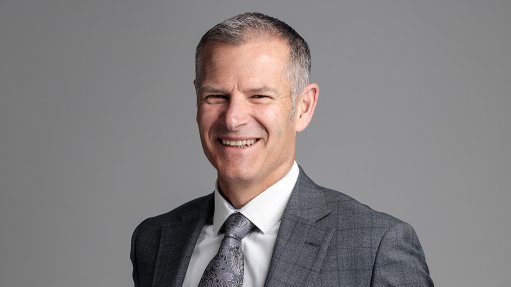UK displays optimism about Africa’s future at summit
January 20 saw the UK-Africa Investment Summit in London, attended by representatives of 21 African countries, including the Presidents of Egypt, Ghana, Kenya, Nigeria, Rwanda and Uganda. That South African President Cyril Ramaphosa chose to pull out of the conference to focus on the country’s current domestic woes was understandable but unfortunate. All the above-mentioned Presidents had one-on-one meetings with UK Prime Minister Boris Johnson, and Ramaphosa would certainly have had one too, if he had been present.
Conservative Party leader Johnson is the undisputed master of the British political field at the moment, following his pretty smashing victory in last month’s UK general elections, which saw a string of traditional Labour Party strongholds elect Conservative MPs, in some cases for the first time ever. And Johnson, who is 12.5% Turkish (and proud of it), has a radically different worldview to that of his predecessor, Theresa May.
A key point is that Johnson takes Africa very seriously indeed. As he pointed out in his opening address to the summit, when he was British Foreign Secretary, he visited more African countries “than any other senior British politician in living memory”. They were Côte D’Ivoire, Egypt, Ethiopia, The Gambia, Ghana, Kenya, Liberia, Libya, Nigeria, Somalia and Uganda – 11 countries in the 24 months he held that office (July 2016 to July 2018). He also increased the number of British diplomatic missions on the continent.
Moreover, the UK is (depending on who is doing the counting) either the fifth- or sixth-largest economy in the world, meaning it is a major market in its own right, and not just an addendum to the European Union (EU). Which, of course, brings us to the fact that the UK-Africa Summit was held just 11 days before Britain leaves – a departure that is now certain – the EU. This is an important moment in the history of the UK and of UK-African relations. After the transitional period, which will end on December 31, Britain will no longer be bound by the EU’s notorious Common Agricultural Policy. Imports of African fruits, wine and other produce into the country will no longer be subject to the anxieties and jealousies of Italian, Spanish and other continental European farmers. This is the time to lobby Britain for more open market access in the future. So, a one-on-one between Ramaphosa and Johnson would have been useful for South Africa.
In his speech, the British Prime Minister observed: “We in the UK have a vital job in continuing to convince people across the continent that we’re not just a great friend and ally, a reliable ally, but also the people you should be doing business with. We have no divine right to that business. This is a competitive world . . . I appreciate, as I say, that there is no shortage of governments out there touting for your business . . . China, Russia, Germany . . . And, of course, we want to build a new future as a global free trading nation – that’s what we are doing now and that’s what we will be embarking on, on the 31st January . . . But I want to intensify and expand that trade in ways that go far beyond what we sell you or you sell us . . . Because what I am really talking about is building a partnership that benefits all of us.”
UK-Africa trade in 2019 was worth £36-billion, which represented a 7.5% increase over 2018. Total British investment in Africa in 2018 was £38-billion, which was 13.8% higher than in 2017. As part of its programme for leaving the EU, Britain has so far made certain that 46 African countries will be able to continue to export to the UK at reduced or no tariffs. London has signed trade agreements with 11 African countries and legislated a trade preferences system with another 35 African countries. At the summit, trade deals worth £6.5-billion were announced.
Britain’s development finance institution, CDC (which is wholly owned by the UK government and was previously called the Commonwealth Development Corporation) announced new investments totalling £300-million in African projects and programmes. It also committed itself to investing a further £2-billion in African businesses over the next two years.
Britain’s Department for International Development (DFID) and Department for International Trade announced two joint trade and investment programmes worth £57-million. One of these, Trade Connect, will disburse £20-million over the next five years to increase exports from Africa to anywhere in the world; it will provide advice and direct support to African businesses seeking to export. It will also assist British firms to obtain quality and competitive African products. The other programme, Growth Gateway, has £37-million in funding. It will help both British and African businesses to trade and invest across Africa. It will also assist African companies to find UK partners.
The DFID also announced programmes amounting to £370-million. These include £200-million to assist in the construction of basic trade infrastructure in Southern Africa, including upgrades to ports, roads and border posts, and to assist governments and businesses to reduce bureaucracy and improve trade policy. Another £45-million will go to helping young people, particularly women, in Africa, gain access to the Internet, acquire digital skills and find employment. The education and training of at least 100 000 African women will be funded in a £2-million programme. Other programmes will support healthcare, girls’ education and climate resilience across the continent.
“In a rapidly changing world, it is Africa that has the biggest potential,” highlighted UK International Development Secretary Alok Sharma in his closing address at the summit. (Sharma spent part of his childhood in Nigeria.) “It is home to eight of the 15 fastest-growing economies . . . We want the UK to be the investment partner of choice for Africa . . . Government cannot deliver prosperity alone. It is business that strikes the biggest deals . . . Mutual partnerships will bring mutual benefits . . . And when Africa succeeds, the world succeeds.”
Comments
Press Office
Announcements
What's On
Subscribe to improve your user experience...
Option 1 (equivalent of R125 a month):
Receive a weekly copy of Creamer Media's Engineering News & Mining Weekly magazine
(print copy for those in South Africa and e-magazine for those outside of South Africa)
Receive daily email newsletters
Access to full search results
Access archive of magazine back copies
Access to Projects in Progress
Access to ONE Research Report of your choice in PDF format
Option 2 (equivalent of R375 a month):
All benefits from Option 1
PLUS
Access to Creamer Media's Research Channel Africa for ALL Research Reports, in PDF format, on various industrial and mining sectors
including Electricity; Water; Energy Transition; Hydrogen; Roads, Rail and Ports; Coal; Gold; Platinum; Battery Metals; etc.
Already a subscriber?
Forgotten your password?
Receive weekly copy of Creamer Media's Engineering News & Mining Weekly magazine (print copy for those in South Africa and e-magazine for those outside of South Africa)
➕
Recieve daily email newsletters
➕
Access to full search results
➕
Access archive of magazine back copies
➕
Access to Projects in Progress
➕
Access to ONE Research Report of your choice in PDF format
RESEARCH CHANNEL AFRICA
R4500 (equivalent of R375 a month)
SUBSCRIBEAll benefits from Option 1
➕
Access to Creamer Media's Research Channel Africa for ALL Research Reports on various industrial and mining sectors, in PDF format, including on:
Electricity
➕
Water
➕
Energy Transition
➕
Hydrogen
➕
Roads, Rail and Ports
➕
Coal
➕
Gold
➕
Platinum
➕
Battery Metals
➕
etc.
Receive all benefits from Option 1 or Option 2 delivered to numerous people at your company
➕
Multiple User names and Passwords for simultaneous log-ins
➕
Intranet integration access to all in your organisation


















